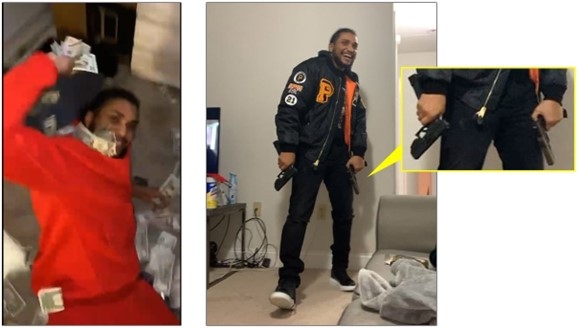Aderito Patrick Amado, the 34-year-old leader of a large-scale drug trafficking operation in Massachusetts’ South Shore, has been sentenced to 32 years in federal prison for orchestrating the distribution of fentanyl, fentanyl analogues, and cocaine throughout Quincy and Weymouth. U.S. Senior District Court Judge William G. Young delivered the sentence in Boston on October 15, 2024, concluding an extensive investigation and prosecution that spanned several years.

Amado, who resided in both Brockton and Quincy, was convicted by a federal jury in June 2024 on multiple charges related to drug trafficking and firearms possession. The court sentenced him to 27 years for the drug trafficking and felon-in-possession charges, followed by a consecutive 5-year term for possessing a firearm in furtherance of drug trafficking. Upon release, Amado will face 10 years of supervised release.
The investigation, spearheaded by the FBI’s Metro Boston Gang Task Force in collaboration with local law enforcement, unveiled the extensive reach of Amado’s operation. The organization primarily operated out of a Weymouth stash house, with additional evidence found in Amado’s Quincy apartment and vehicle. Searches of these locations yielded significant quantities of fentanyl, fentanyl analogues, and cocaine, along with cash, firearms, and drug manufacturing equipment.
Particularly damning evidence included GPS data from Amado’s court-ordered ankle monitor, which placed him at both his residence and the stash house nearly daily over a two-month period while on probation for a state drug conviction. Furthermore, Amado’s fingerprints were found on ammunition and cutting agent packaging in the stash house.

Acting United States Attorney Joshua S. Levy emphasized the case’s significance, stating that the lengthy sentence “should send a strong message to others: do not engage in the toxic brew of illicit narcotics and guns, or you will go to jail for a very long time.” FBI Special Agent in Charge Jodi Cohen highlighted Amado’s disregard for the region’s opioid crisis, while Quincy Police Chief Mark Kennedy expressed that removing Amado from the streets “undoubtedly saved lives in our community.”
The case was part of an Organized Crime Drug Enforcement Task Forces (OCDETF) operation, aimed at dismantling high-level criminal organizations threatening the United States. Assistant U.S. Attorneys Kaitlin R. O’Donnell and Philip A. Mallard of the Criminal Division led the prosecution.


